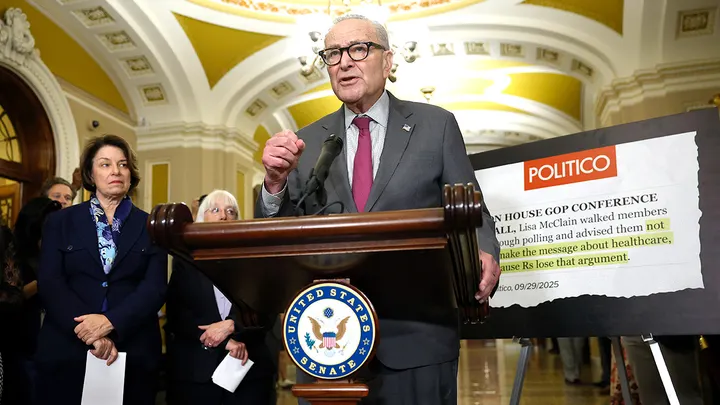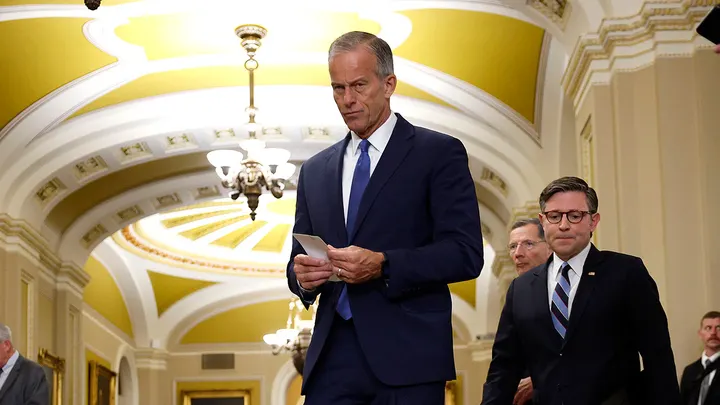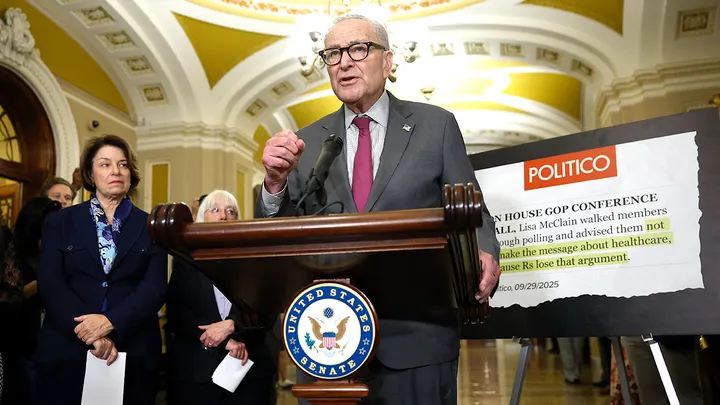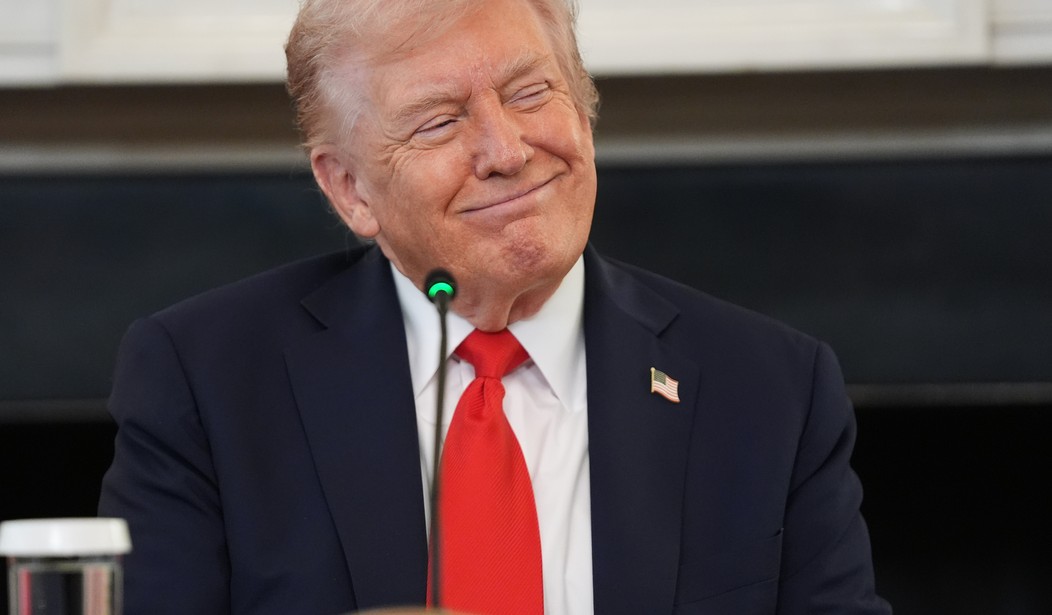Day 14 of the shutdown, and Democrats are still parked on the same talking points while blocking yet another GOP attempt to reopen the government—number eight, for those keeping score at home. A long weekend away from Washington didn’t soften the Senate Democrats’ resolve, and neither did the Trump administration’s warning—backed by OMB Director Russ Vought—of mass firings if the stalemate drags on. Apparently, obstruction is a full-time job.
One pressure point got defused: President Donald Trump directed the Pentagon to move money so service members get paid on Oct. 15. Because unlike some folks, he understands paydays aren’t theoretical. Still looming: the Oct. 20 payday for Senate staffers—so perhaps reality will eventually wander into the chamber.

The lines haven’t moved since the month began. Democrats demand an extension of expiring Obamacare subsidies before the Nov. 1 open enrollment date, claiming premiums will skyrocket without fresh congressional action. Trump isn’t buying it. He reiterated Republicans’ case that Democrats are trying to unwind $1.5 trillion in spending cuts from the “big, beautiful bill” and claw back NPR/PBS cuts to funnel, in part, toward illegal immigrants. Priorities.
At the White House, Trump didn’t mince words: “Schumer is a weakened politician… He’s allowed the radical left to take over the Democrat Party.” Hard to argue when the minority leader’s strategy boils down to blockade now, negotiate later—maybe.

Senate Republicans say they’re open to discussing subsidies—after the government reopens. Majority Leader John Thune is keeping the pressure on, repeatedly bringing the House GOP short-term CR to the floor. “Negotiation… is what you do when each side has a list of demands,” Thune said, noting Republicans haven’t made demands while Democrats’ wish list is “very expensive.” Schumer’s retort? The bill keeps failing, so the GOP must “work with Democrats in a bipartisan way”—translation: cave first, talk later.
Democrats weren’t swayed by the administration’s weekend move on reductions in force or by the warning that thousands of furloughed nonessential employees might not get back pay after this ends. The vote produced few surprises: Sens. Catherine Cortez Masto and Angus King again broke with Schumer to support the bill, while Sen. John Fetterman—who had previously voted with Republicans on this same measure—did not vote Tuesday night. Outside OMB, Sen. Chris Van Hollen rallied the faithful with a familiar script: “Donald Trump, come to the negotiating table… stop inflicting harm.” Sure—reopen the government by not demanding a ransom. Novel idea.

Meanwhile, the Senate isn’t entirely idle. It moved ahead on the 2026 National Defense Authorization Act and a major package of Trump nominees. Thune also teed up the defense spending bill for a Thursday vote to jump-start appropriations. The House already passed its version—proof that functioning is still legal in Washington.
With Tuesday’s failure, the shutdown heads into at least a third week—historic company. The longest shutdown on record (late 2018–early 2019) was partial; the longest full shutdown was 21 days under President Bill Clinton (1995–96), during a budget fight with Speaker Newt Gingrich that yielded two separate shutdowns that fiscal year. So yes, Democrats have been here before—and they learned all the wrong lessons.
Bottom line: Republicans are offering to talk once government reopens; Democrats keep blocking a clean restart while demanding Obamacare concessions up front. Trump ensured troops are paid, Thune keeps the floor humming, and a couple of Democrats are breaking ranks. That sounds like momentum—slow, steady, and headed in the right direction.



